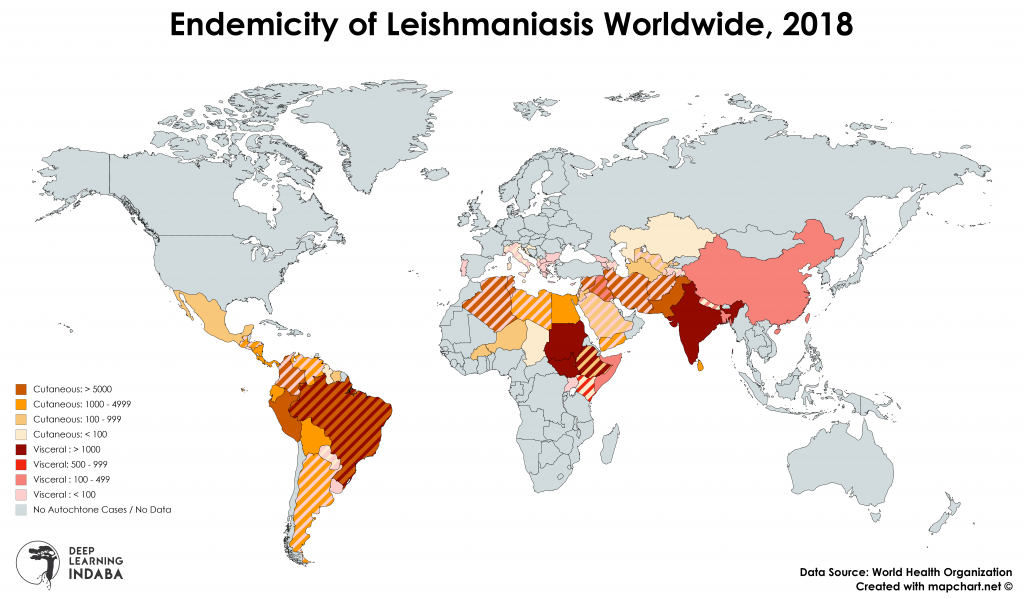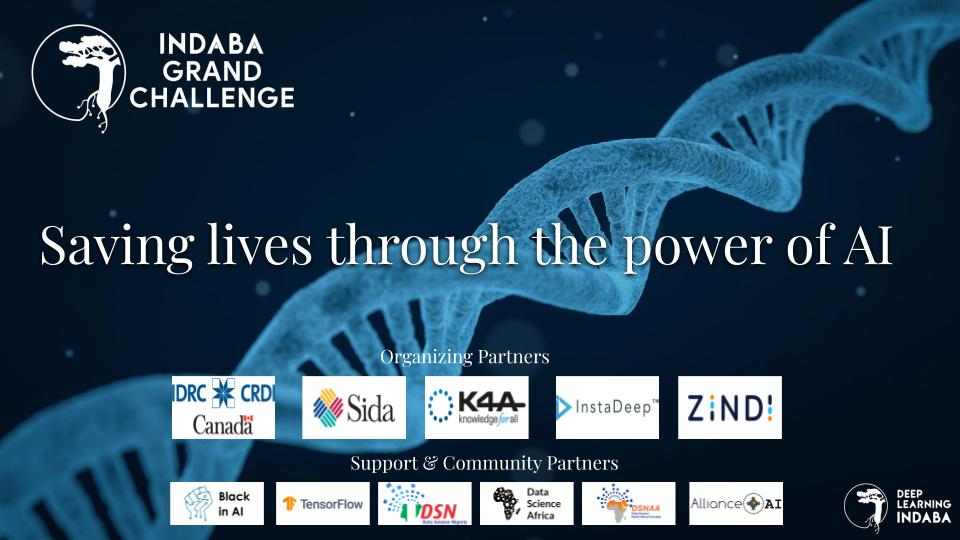Over the last few months, several volunteers at InstaDeep, including the two Co-Founders Karim Beguir and Zohra Slim, have been working closely with the Deep Learning Indaba Steering Committee to develop the incredibly ambitious Indaba Grand Challenge! The initiative kicked-off on the 30th June and aims for nothing less than finding a cure for Leishmaniasis, a horrible parasitic disease killing 50,000 people annually, and affecting millions of people mainly from poorer nations the world over.
Neglected disease
The problem at hand is shocking. Whilst the disease is affecting around 200 million people globally, it is classified as a “non-priority” and features on The World Health Organization’s list of Neglected Tropical Diseases (NTDs).
The solution, however, is obvious. With a ton of data on this and other parasitic diseases freely available, thousands of known safe drugs developed for other diseases, and millions of drug-like compounds available for purchase at a modest price, Machine Learning can play an essential role in identifying the potential cure by using standard computational biology and chemistry tools, together with publicly available data on drugs, drug targets and NTD pathogens.
As an Indaba Steering Committee member and CEO of InstaDeep, Karim is pleased to see the collaboration come to fruition. “We’re at the forefront of innovation when it comes to new uses of AI within the community. Importantly, we’re truly delivering on InstaDeep’s mission as a company to accelerate the transition to an AI-First world that benefits everyone. This initiative might save lives – it is something to be proud of!” says Karim.

No better use of AI
As an organising partner, InstaDeep has developed the concept, API and platform on which the event will run, in close partnership with Zindi Africa. As two African start-ups, Zindi and InstaDeep are leveraging both companies’ scalable ML/AI platforms for the challenge. “We are very pleased to launch this challenge where there is hope that we can crack the diseases and ultimately create a cure. There is no better use of AI than to save lives”, says Karim.
There are many opportunities for Machine Learning and Deep Learning to intervene in the creation of a cure for Leishmaniasis, including the discovery of New Chemical Entities (NCEs, drug-like compounds that have yet to be proven effective for any purpose), repurposing or combining existing drugs (compounds that are already known to have a therapeutic effect), and in clinical diagnostics and epidemiology.
Approach praised by WHO
While there are drugs available today, Benjamin Perry, PhD Senior Discovery Manager and Research Scientist at Drugs for Neglected Diseases initiative (DNDi), explained during the challenge launch that all the current “best practice” treatments are, unfortunately, bad. They all come with terrible side effects, pose great difficulties to administer, and in some cases are not cost-effective. He specifies there is a huge need for a new drug, and this is where AI comes into play.
The Chief NTD Scientist at the World Health Organization (WHO) is of the same opinion. “Yes, I agree [to the approach]. Better treatments for the leishmaniases are needed. Deep Indaba’s Grand Challenge to find medicines that could be repurposed is a sensible approach – and target product profiles would help”, says Anthony Solomon as he addresses the challenge in a Tweet.
Community effort
The Grand Challenge takes a “bottom-up” approach and calls on the communities, African Start-ups and other tech partners to come together and collaborate on finding different, novel solutions for the purpose. It dares participants to help identify potential cures for different forms of leishmaniasis amongst the already known, tested and (often) approved drugs.
Promising solutions will be tested experimentally by the Indaba expert partner DNDi, a non-profit drug research organisation dedicated to finding new treatments for NTDs. Through a small, concerted drug repurposing effort a few years back, DNDi found the first new, safe treatment for African sleeping sickness, a disease caused by another parasite, very similar to the one causing leishmaniasis. This makes the success of Grand Challenge more probable, but classical methods of chemists and NTD researchers are not sufficient. Applying complex ML models to large data sets can uncover the patterns and relationships that remain imperceptible to the experts. “To our knowledge, this approach to cure a neglected disease has never been tried before. If we succeed, it will save lives and show how Africa can innovate and lead in AI”, says Karim.
Interested in joining the challenge?
All details on how to participate in the challenge can be found here. You can also re-visit the launch in the top of this post where the Great Challenge is explained in full, and thorough background information on the disease is provided. Participations are now open with the challenge set to finish early 2021.
We would like to extend a huge thank you to all the partners supporting the challenge include the International Development Research Centre (IDRC), Knowledge4All, Zindi Africa, Tensorflow, Data Science Nigeria, Data Science Africa, Alliance4ai and Black in AI.

Read more about Leishmaniasis on the Deep Learning Indaba’s Grand Challenge page.
